Hello all!
The MV Explorer has just returned to the Northern Hemisphere and is nearly to India, almost literally half way around the world at this point. In celebration we did not have a day of very unusual traditions for this equatorial crossing, but instead we had a day of “Sea Olympics.” For this event the ship population was split into nine different seas. Most seas had relatively boring names such as the “Mediterranean Sea,” the “Andaman Sea,” and so on, but the Life Long Learners (retired travelers) got creative; they called themselves the “Nearly Dead Sea.” My sea name was not very exciting—we were the Yellow Sea although for some reason our team color that we had to wear was red (yes, very confusing). There were about twenty different very strange competitions that each Sea had to partake in. I participated in Pictionary and crab soccer; in both events my excellent teammates and I took first place. I sacrificed quite a bit for those wins, too--my hands have blisters all over them from crab soccer--but unfortunately the Yellow Sea still came in second overall. Even without the big win, I had a great day of ship-community bonding.
Four days ago we boarded the ship after a quite fun three day getaway in the tropical island of Mauritius. For those of you who don’t know, Mauritius is a small island nation located a few hundred miles east of Madagascar. As it turns out, Mauritius is the farthest point of land you can get from Southern California, so for all of you reading from Los Angeles, I’m just about as far from you as I will ever be.
This great distance from the U.S. also meant we were the only American tourists on the island, but we were definitely not overlooked. A German tourist I was talking with said to me, “everyone on the island knows you [Americans] are here.” I guess it’s pretty hard to not notice the sudden influx of five hundred rowdy American college kids running around an island that’s not more than twenty-five miles wide.
So a bit about Mauritius: It is quite a cool little place. Mauritius is a non-active volcanic island surrounded completely by coral reefs. Because the island is so isolated there are many endemic species of flora and fauna that are unique to the island. The only that you will all be familiar with is the dodo bird. Mauritius was the only place in the world the dodo was found, but in the 17th century the hungry Dutch settlers and their dogs hunted it to extinction.
Two thirds of the Mauritian population is of Indian decent (they were brought in as agricultural workers in the 1700’s) so there is a large Hindu influence. Though The Netherlands, Great Britain, and France all had a hand in the settlement of the island, the French had the largest role which is clear today as the main language of the Mauritians is French. Luckily for me, most of the people know English, too.
A group of friends and I rented an awesome villa near the coast so we could get away from ship life for a bit and have a different [and much larger] space to hang out. Though Mauritius is a very special and unique place, what mattered most to us SAS students was that it has gorgeous beaches. We definitely did a lot of beach afternoons with pina coladas, but I managed to wake up in the mornings to go do some pretty cool things as well. One day my villa-mates and I took a boat out to an uninhabited neighboring island, “Isle de Gabriel,” where we had a barbeque, and yes, we did more hanging out on the beach with beverages.
Still, I did change things up significantly one day when I went SCUBA diving on the coral reefs surrounding the island. I don’t know if you non-divers can appreciate this, but the health of the coral reefs was shockingly wonderful. I’ve only ever been diving in North America—the Florida Keys, the Caribbean, the Sea of Cortez, and around Hawaii—but I just assumed all of the worlds’ reefs were in a similar very poor state. With my first dive in the Indian Ocean I found out this is not at all true. While about twenty to thirty percent of corals where I’m used to diving are dead or bleached, I would guess that one or maybe two percent of the corals I saw on my dive in Mauritius were dead. It was awesome to see such a pristine reef. I also saw my first squid on the dive! There were fifteen or twenty swimming together—it is rather unusual to see so many squid at one time.
Not only was the dive itself amazing, but our dive master, Bhurtun, who took us out was super cool, too. After the dive I was with my two buddies and we asked him where we could find a place to get a beer and sit on the beach. Bhurtun offered to give us a ride there and along the way said he needed to make a quick stop. At the stop we just waited in the car only to see him come back with a six pack of beer and a bunch of snacks for us. He then drove us to a beautiful beach and refused to take the tip we tried to give him for showing us such a great day. Sitting at that perfect beach with beer in hand, we couldn’t stop talking about how cool Bhurtun was and how absolutely amazing of a day we just had.
So yes, Mauritius was a success. It was a great break from school work and the depressing side of many of our visits in ports. I realized after writing my last blog about how great South Africa was, that I often neglect to write about the many troubles of the countries I have visited. I left out the lasting effect of the bigoted apartheid government, the twenty percent prevalence of HIV/AIDS, and the illiteracy rate of nearly fifty percent from my blog on South Africa. I suppose I did this mainly because I did have such an amazing time, and I would much prefer to tell you happy stories than to discourage you. And still, I don’t mean to depress you now, but after thinking it over I realized that seeing these many problems is a very important part of my experiences and I would be doing these people a disservice by not recognizing the many challenges they face. A friend of mine who went to help build a house with Habitat for Humanity in South Africa said that the people were so happy to know that we are aware they are in great poverty—they want to know that they are not being forgotten.
On that note, I expect India to be the most humbling experience yet. With six hundred million people living on less than two dollars a day, India has more challenges to face than any country we have visited thus far. Our professors have already warned us that India will not be comfortable—that India will “offend all of the senses” and dumbfound us even though we have been prepared for the kind of immense poverty we will encounter. I am both nervous and excited for our arrival in Chennai tomorrow morning.
The sun is going to rise in just three hours now, so it’s definitely time for sleep before experiencing both the physical and emotional demand of India. As always, I’ll write back in a week or two.
svc
Friday, October 23, 2009
Subscribe to:
Post Comments (Atom)
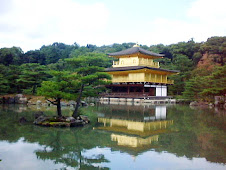

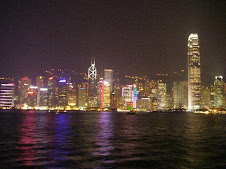
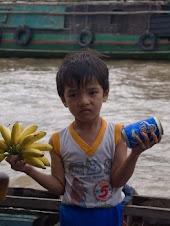
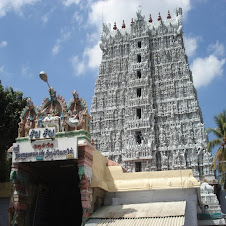
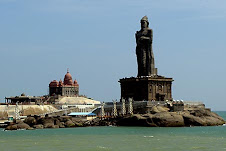
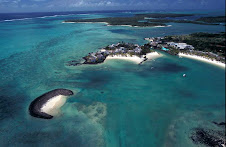


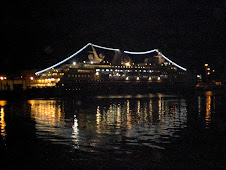
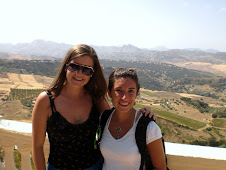

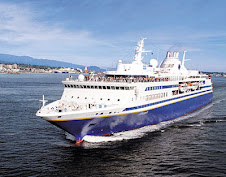
No comments:
Post a Comment